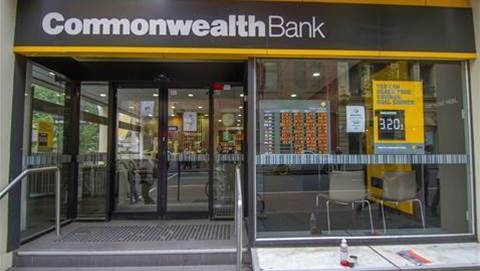Vocus' share price has taken its second big tumble in six months following a late night 20 percent profit downgrade as it struggles to integrate acquired businesses.
Shares in the telco were trading at $2.47 at midday on Wednesday as the market punished Vocus for its second downgrade in six months.
An earlier downgrade in late November last year similarly saw the company lose over a quarter of its value at the time.
Today’s adjustment means the company’s share price has fallen from $5.76 on November 28 to just $2.47 in less than six months.
It came after Vocus announced last night that its revenue would be $100 million lower than expected, which would have flow-on effects on the company's earnings and net profit.
The telco attributed the downgrade to a drop in enterprise and wholesale sales as well as the late realisation of revenue from certain big contracts, made clear following an internal accounting and technology review.
Both problems fundamentally stem from issues Vocus is experiencing in consolidating the many businesses it has acquired in recent years.
CEO Geoff Horth admitted to investors this morning that merging the likes of Nextgen Networks, Amcom, and M2 into the wider group was not going to plan.
The profit downgrade was a combination of the company having to spend more to meet customer needs while it works to get its underlying technology in order, and not having proper visibilty over its finances due to disparate systems, he said.
"Those costs aren't driving revenue growth," Horth said.
"We've obviously got an expanded platform now and greater diversity of products, but we can't deliver a unified experience on a single provisioning platform. So depending on the product [customers] are buying, they're going to get a different experience and be dealing with different teams.
"We've had to keep adding costs to manage these manual customer journeys, so we're not recognising revenue at the rate we'd forecast.
"It is also making our organisation not recognise general efficiencies around networks and the technology environment."
While a large amount of work has been done, to date the business had been too focused on the "useful many" projects rather than the "vital few", Horth said.
As a result the build of a single provisioning platform for customers, and the consolidation of myriad ERP systems within the group, has not progressed at the rate Vocus had hoped.
Multiple billing systems and disparate finance teams has also meant Vocus is lacking "timely and quality" visibility over its costs.
But while acknowledging the current state of play as 'disappointing", Horth sought to reassure investors the company was progressing in its plan to fix the problems.
It is currently restructuring its finance function to give each of its three operational divisions a dedicated finance general manager and team, with full accountability for everything that happens in that business.
It has purchased a reporting and planning tool that it will layer on top of its various ERP systems to provide "a lot more consistency and timeliness of reporting" on its finances. Vocus expects that tool will be stood up "fairly quickly".
And it is working at speed to meet a self-imposed July 1 deadline for having its three core businesses operating on a single ERP system.
"There's no doubt this business has a high amount of complexity. We've done a lot of acquisitions and there's a big body of work ahead of us," Horth said
It has nearly completed its review of its technology environment and the subsequent definition of its enterprise architecture.
Vocus is also close to appointing a new chief technology officer to replace Chris Deere, who left as part of a March restructure, as well as a new transformation chief that will run all technology and transformation programs across the business.
"We know what we have to do, and we have a really quality team," Horth said.
"The business is fundamentally sound, it's the same business, and the platforms, brands, and assets are as compelling as ever. The issues are eminently fixable and we are very focused on fixing them."
However, the problems have raised the spectre of a “possibly fatal blow to the credibility of the management and board” at Vocus.
Vocus founder James Spenceley was forced out of the company in mid-October last year, a month prior to the beginning of the bloodbath.
.jpg&w=350&c=0&s=1)

.jpg&h=140&w=231&c=1&s=0)























